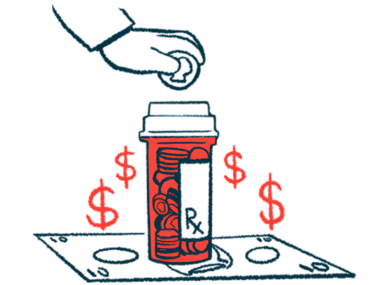New smartphone-based tool to monitor Parkinson’s launches in US
Neu Health's FDA-cleared app offers accessible, at-home symptom tracking
Written by |

Neu Health is launching its smartphone-based system to measure tremors in people with Parkinson’s disease in the U.S.
The Food and Drug Administration (FDA) has cleared the company’s digital tool to track Parkinson’s symptoms remotely, which uses only a smartphone to measure tremor severity, reducing reliance on wearables or in-clinic equipment. It’s part of Neu’s broader platform for monitoring mild to moderate Parkinson’s disease and dementia.
“Neu offers health systems a new path forward, where high-frequency monitoring, predictive insights and home-based tools expand the reach of neurologists, relieve pressure on frontline staff and raise the standard of care for millions of patients and families,” Caroline Cake, Neu’s CEO, said in a company press release.
Mass General Brigham in Boston is already using the platform in clinical care. Neu is now expanding partnerships with U.S. healthcare systems, with the company emphasizing that its platform may be an efficient, low-cost option for people with Parkinson’s who live in rural areas or have limited access to neurologists.
Early NHS data show positive responses from patients, healthcare providers
Early data from the U.K.’s National Health Service (NHS) showed positive responses from patients and healthcare providers.
Parkinson’s is a progressive disease caused by the death of neurons that produce the signaling molecule dopamine. This can lead to a variety of motor symptoms, including tremor and slowed movements, as well as nonmotor symptoms, such as mood and cognitive changes.
Tracking these symptoms regularly can help both patients and clinicians understand disease progression and choose treatment plans appropriately. However, most tools for tracking symptoms require individuals to wear specialized hardware or visit clinics. Neu’s fully smartphone-based system aims to make this type of proactive monitoring more accessible, helping doctors make clinical decisions before symptoms dramatically worsen.
“For too long, we’ve treated brain health reactively, standing by until someone is visibly declining before stepping in,” Cake said. “We can no longer wait for accidents to happen to justify the next level of care for our loved ones.”
In addition to tracking tremor, the platform can assess changes in voice, balance, gait and other parameters by guiding users through structured tests. Behavioral cognitive tests may also capture nonmotor symptoms. Using machine learning, algorithms then look for patterns in the data and present results to healthcare providers through a clinician dashboard.
“People often overlook voice or gait changes because they assume they’re minor, but they’re among the earliest and most actionable signals of neurological decline,” said Kinan Muhammed, MD, PhD, chief medical officer of Neu and a neurologist at Oxford University. “By capturing these subtle shifts longitudinally and objectively, Neu allows us to anticipate deterioration, personalize treatment and reduce the burden on patients, caregivers and care teams alike.”
The NHS began a contract with Neu Health in 2024. Later that year, the company announced initial results from the first six months of the partnership. During that time, 105 Parkinson’s patients used the platform to complete more than 49,000 digital assessments.
Most clinicians report information from app improved patient care
About half of these participants saw a change in medication dosing due to test results. Most of the clinicians using the dashboard (90%) reported that information from the platform significantly improved patient care. Together, clinical changes influenced by the platform increased quality-of-life measures by an average of 12%.
The technology also allowed about half of the patients to schedule their own follow-ups and have remote appointments instead of going into the clinic.
Both patients and clinicians expressed satisfaction with the platform. All clinicians thought the dashboard was useful and among users, 83% said the app was easy to use. There were significant increases in patients’ knowledge about Parkinson’s and their confidence in managing the disease.
Since then, the company has redesigned the app to be more user-friendly by simplifying key features, improving navigation, and enhancing accessibility.






